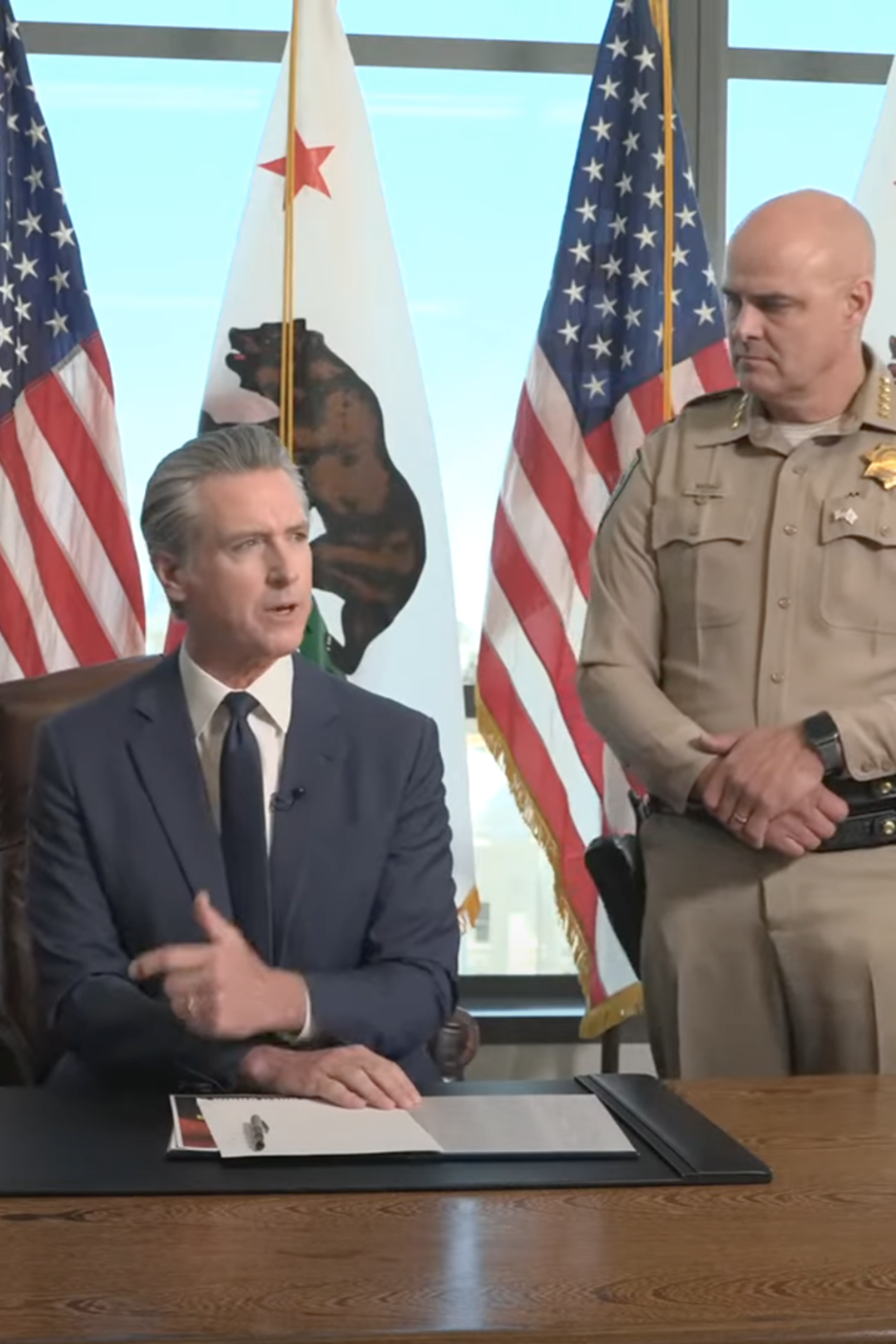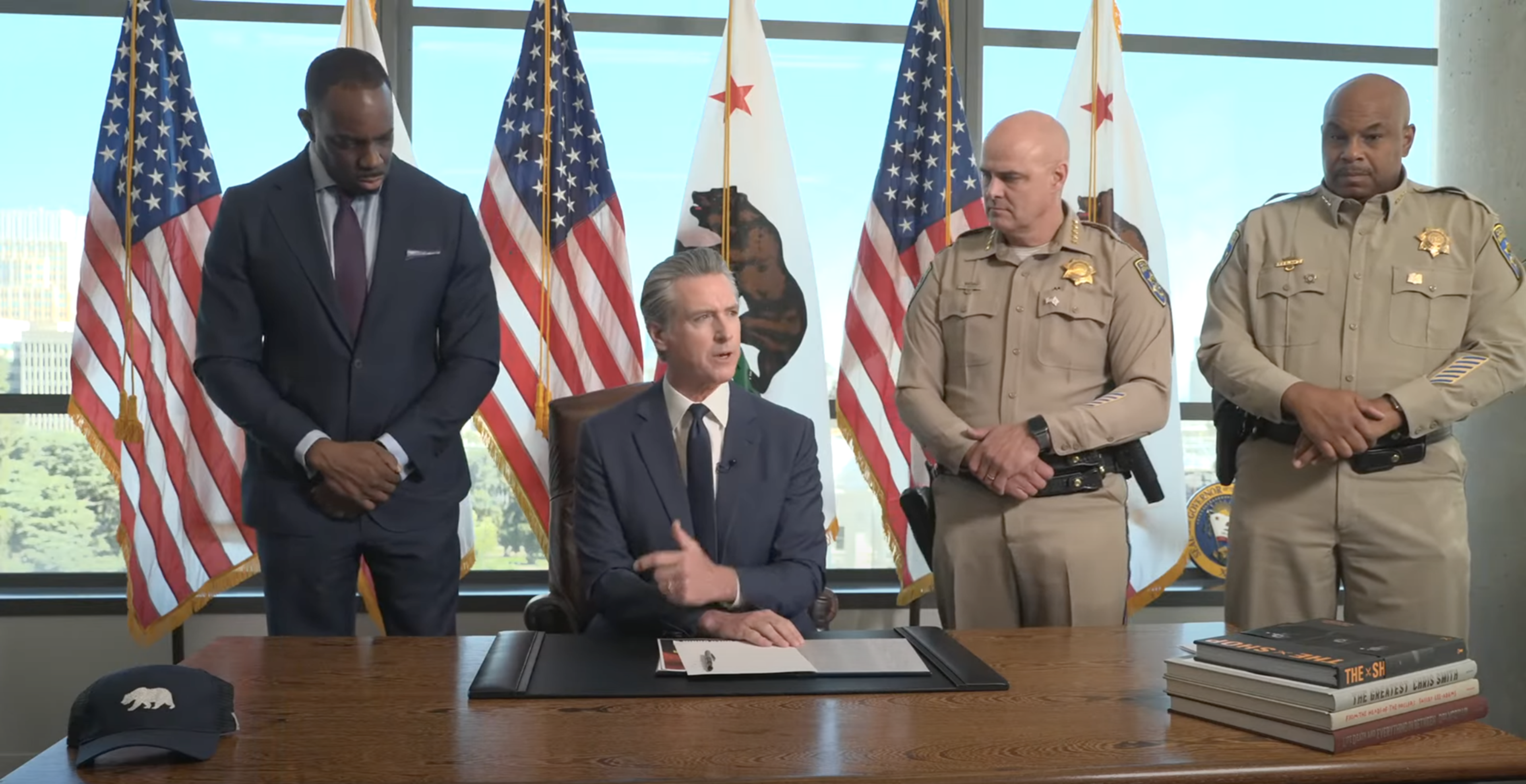More officers from the California Highway Patrol will be deployed to the Bay Area and other parts of the state under an initiative Gov. Newsom announced Thursday.
Unlike President Trump, whom Democrats have criticized for taking over Washington D.C.'s police force and deploying the National Guard to Los Angeles, Newsom said he's collaborated with local officials on this plan.
The CHP officers will also be sent to Los Angeles, San Diego, the Inland Empire, Central Valley, and Sacramento.
By Newsom's own admission, crime has dropped across California in the first half of 2025, compared to last year. In San Francisco, crime has fallen 27% through August 24 compared to the same period last year, according to the city's police department (opens in new tab). Deploying more officers from the CHP to trouble spots could accelerate that downward trend, officials hope.
"Good enough never is," Newsom said, emphasizing that despite the overall reduction in crime, more work remains to improve public safety.
Last week, Trump said that he'd "clean up" San Francisco and other cities with Democratic mayors.
But Newsom pointed to stats showing that violent crime is higher in some states controlled by Republicans.
"If the president is sincere about the issue of crime and violence, there's no question in my mind that he'd likely be sending the troops into Louisiana, Mississippi, to address the just unconscionable wave of violence that continues to plague those states," Newsom said.
Traditionally, the Highway Patrol's mission has been to enforce traffic laws, but the agency has seen its role expand to fight other crimes.
In 2023, the CHP saw high-profile deployment in San Francisco’s Tenderloin and South of Market neighborhoods in an effort to help embattled San Francisco police take on the fentanyl epidemic. CHP and other Bay Area law enforcement agencies also assisted San Francisco during November 2023’s APEC gathering to patrol the Golden Gate and Bay bridges, staff venues and handle protests.
In 2024, Newsom announced CHP officers were being sent to Oakland, which has an understaffed police department. Since then, the CHP has recovered more than 4,200 stolen vehicles, seized 247 guns, and made 357 arrests for alleged felonies, according to Newsom. The Highway Patrol has recently been used for similar purposes in Bakersfield and San Bernardino.
CHP teams have removed approximately 2,500 illegal firearms from California streets this year and seized nearly 1,100 pounds of fentanyl and other illegal drugs, CHP Commisioner Sean Duryee said.
The latest expansion will create teams of at least 15 officers including K-9 units and supervisors, Newsom said during a news conference at the state Capitol. The mobile teams will be deployed based on data-driven targeting of crime hot spots.
The governor cited additional statistics comparing California cities to those in other states, saying St. Louis has a murder rate "190 percent larger than Oakland" and Arkansas ranks among the "top 10 murder states in America" with a rate "two and a half, 2.6 times greater than San Francisco."
Newsom characterized the comparisons as "stone-cold facts" and suggested Trump's focus on California reflects "an expression of authoritarianism" rather than genuine concern about crime reduction.
Newsom also said the state is awaiting a federal court decision that could limit President Trump's authority to deploy military forces in California cities. The governor said the ruling, expected from a federal district judge, will be the first in the country "to adjudicate the facts" based on depositions from Trump administration officials, border patrol agents, and military personnel regarding their operations in California.
"I think its consequences will be profound and far-reaching," Newsom said of the pending decision. "We're not naive about the challenges that continue to plague our communities throughout the state of California."
Transportation Secretary Toks Omishakin said that Caltrans will be more involved in clearing homeless encampments — another of Newsom's priorities — that sprout near highways.
"The issues related to crime are very much connected to what our streets look like," Omishakin said.
On Wednesday, Mayor Daniel Lurie announced that Caltrans gave San Francisco officials permission to target encampments beneath freeways.
"We're not just cleaning up encampments just to distress people, but to make sure that they have long-term housing and care that they need as well," said Omishakin.

